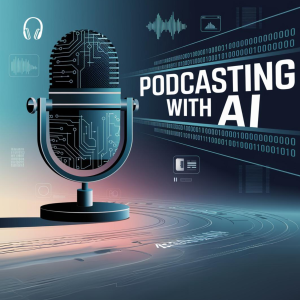
Tuesday Oct 01, 2024
AI on the Rise: Unpacking the Future of Technology"
This week, we dive deep into the fast-moving world of AI. From Nvidia’s $250 million acquisition of OctoAI, OpenAI’s jaw-dropping financial projections, to Hollywood’s surprising foray into AI, it’s clear that this tech is reshaping industries at breakneck speed. Join us as we break down Nvidia’s push to dominate AI hardware, OpenAI’s massive revenue potential (and equally massive losses), and the intriguing future of AI agents. Plus, we explore how AI might change filmmaking forever, with visionaries like James Cameron leading the charge. It’s an episode packed with insights, bold moves, and a few unsettling questions about where AI is headed. Stay tuned!
AI FAQ
What is Nvidia doing to solidify its position in the AI industry?
Nvidia is aggressively pursuing an "AI stack" strategy by acquiring companies that provide a wide range of AI solutions. Their recent purchase of OctoAI for $250 million, their fifth acquisition this year, signifies their intent to go beyond hardware and offer software and services for AI development and deployment. This strategy is reminiscent of Microsoft's dominance in the PC market. However, Nvidia faces stiff competition and the evolving regulatory landscape poses challenges to their ambition.
What are OpenAI's financial projections, and what challenges do they face?
OpenAI projects a revenue of $3.7 billion this year, primarily driven by its ChatGPT product. However, they also anticipate a significant loss of $5 billion, primarily due to the high costs associated with running and training their sophisticated AI models. The sustainability of this spending model is a concern, as it heavily relies on venture capital and a close partnership with Microsoft Azure.
What are AI agents, and how do they differ from traditional AI tools?
AI agents represent a significant shift from AI as a mere tool to AI as a collaborator. Unlike traditional AI, which relies on explicit instructions, AI agents leverage unsupervised learning to analyze data, identify patterns, and make decisions independently. This advancement promises increased efficiency and automation but also raises concerns about job displacement and the ethical implications of AI decision-making.
How is unsupervised learning changing the capabilities of AI?
Unsupervised learning allows AI to learn and adapt without explicit human instructions. Instead of relying on labeled data, AI systems can analyze vast datasets, identify patterns, and extract meaningful insights. This ability enables AI agents to perform more complex tasks, make autonomous decisions, and even collaborate with humans in unprecedented ways.
What is the potential impact of AI agents on the job market?
The emergence of AI agents raises concerns about job displacement as they can potentially automate tasks previously performed by humans. While some experts believe that AI will create new job opportunities, others worry about the potential for widespread unemployment and the need for workforce retraining and adaptation.
How is Hollywood incorporating AI into filmmaking?
Hollywood is increasingly integrating AI into various aspects of filmmaking, from scriptwriting and character development to special effects and animation. Visionaries like James Cameron are partnering with AI companies like Stability AI, known for its AI image generation technology, Stable Diffusion. This collaboration suggests a future where AI plays a significant role in shaping cinematic experiences.
What are the potential benefits and drawbacks of using AI in filmmaking?
AI in filmmaking offers potential benefits such as cost reduction, enhanced special effects, and the democratization of storytelling by making film production accessible to a wider audience. However, concerns remain about the impact on human creativity and employment prospects for actors, writers, and other film professionals.
What are the key takeaways regarding the rapid advancements in AI?
The rapid evolution of AI necessitates continuous learning and adaptation. While AI offers unprecedented opportunities for innovation and progress, it also presents challenges related to ethics, job displacement, and societal impact. Engaging in thoughtful discussions and responsible implementation will be crucial to harnessing the full potential of AI while mitigating its potential risks.
Comments (0)
To leave or reply to comments, please download free Podbean or
No Comments
To leave or reply to comments,
please download free Podbean App.